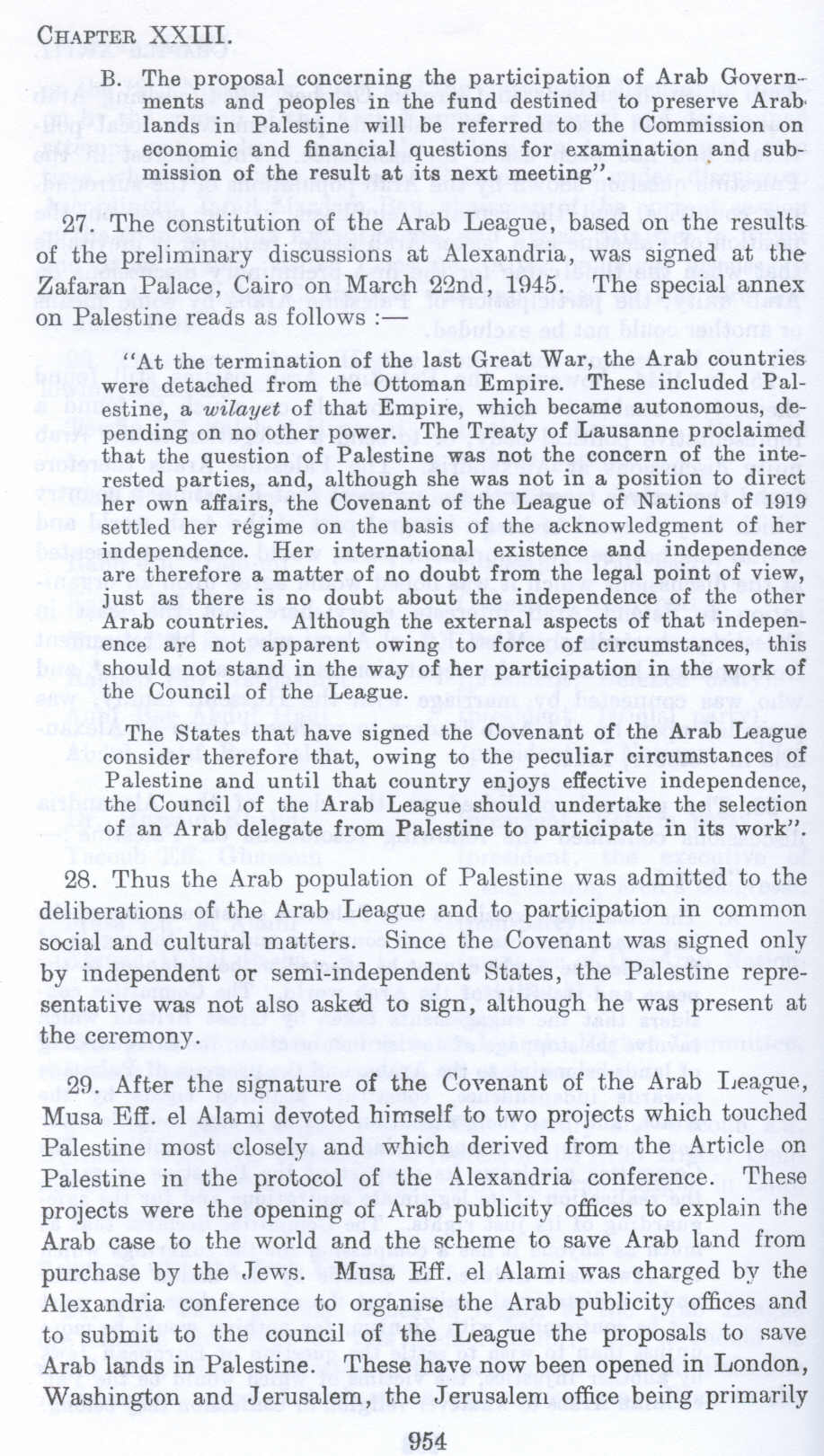| Prev | Next |  |
| Prev | Next |
| PalestineRemembered | About Us | Oral History | العربية | |
| Pictures | Zionist FAQs | Haavara | Maps | |
| Search |
| Camps |
| Districts |
| Acre |
| Baysan |
| Beersheba |
| Bethlehem |
| Gaza |
| Haifa |
| Hebron |
| Jaffa |
| Jericho |
| Jerusalem |
| Jinin |
| Nablus |
| Nazareth |
| Ramallah |
| al-Ramla |
| Safad |
| Tiberias |
| Tulkarm |
| Donate |
| Contact |
| Profile |
| Videos |
British Mandate: A Survey of Palestine: Volume II - Page 954 |
Disclaimer
The above documents, article, interviews, movies, podcasts, or stories reflects solely the research and opinions of its authors. PalestineRemembered.com makes its best effort to validate its contents.


Post Your Comment
*It should be NOTED that your email address won't be shared, and all communications between members will be routed via the website's mail server.
B. The proposal concerning the participation of Arab Governments and peoples in the fund destined to preserve Arab lands in Palestine will be referred to the Commission on economic and financial questions for examination and submission of the result at its next meeting". •
27. The constitution of the Arab League, based on the results of the preliminary discussions at Alexandria, was signed at the Zafaran Palace, Cairo on March 22nd, 1945. The special annex on Palestine reads as follows :-
"At the termination of the last Great War, the Arab countries were detached from the Ottoman Empire. These included Palestine, a wilayet of that Empire, which became autonomous, depending on no other power. The Treaty of Lausanne proclaimed that the question of Palestine was not the concern of the interested parties, and, although she was not in a position to direct her own affairs, the Covenant of the League of Nations of 1919 settled her regime on the basis of the acknowledgment of her independence. Her international existence and independence are therefore a matter of no doubt from the legal point 0£ view, just as there is no doubt about the independence of the other Arab countries. Although the external aspects of that indepenence are not apparent owing to force of circumstances, this should not stand in the way of her participation in the work of the Council of the League.
The States that have signed the Covenant of the Arab League consider therefore that, owing to the peculiar circumstances of Palestine and until that country enjoys effective independence, the Council of the Arab League should undertake the selection of an Arab delegate from Palestine to participate in its work".
28. Thus the Arab population of Palestine was admitted to the deliberations of the Arab League and to participation in common social and cultural matters. Since the Covenant was signed only by independent or semi-independent States, the Palestine representative was not also asked to sign, although he was present at the ceremony.
29. After the signature of the Covenant of the Arab League, Musa Eff. el Alami devoted himself to two projects which touched Palestine most closely and which derived from the Article on Palestine in the protocol of the Alexandria conference. These projects were the opening of Arab publicity offices to explain the Arab case to the world and the scheme to save Arab land from purchase by the Jews. Musa EfI. el Alami was charged by the Alexandria conference to organise the Arab publicity offices and to submit to the council of the League the proposals to save Arab lands in Palestine. These have now been opened in London, Washington and Jerusalem, the Jerusalem office being primarily
954